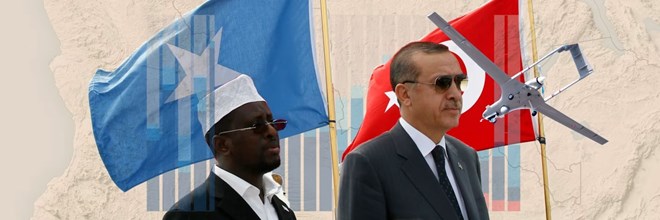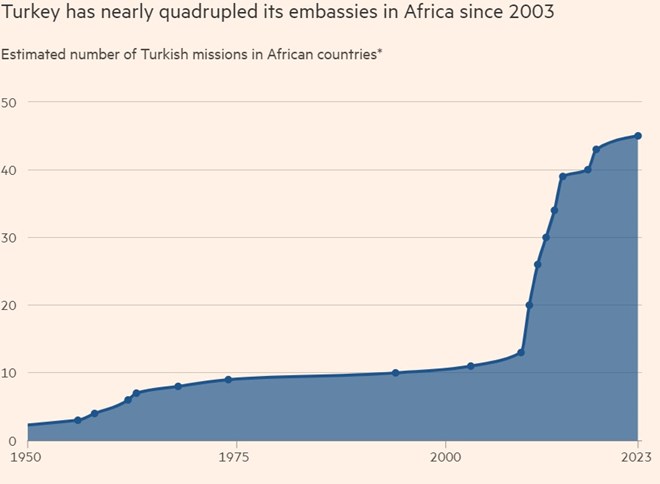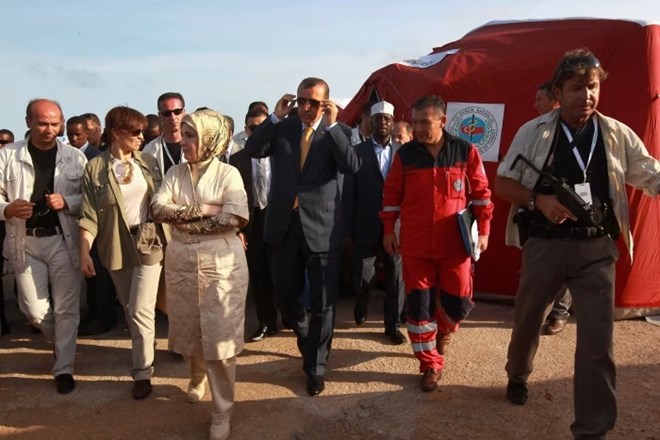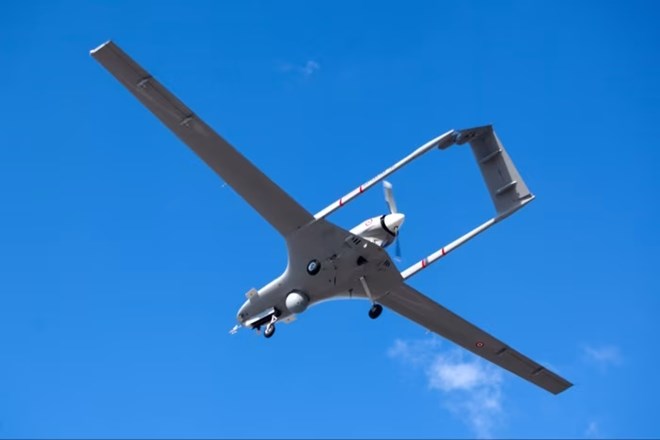
Wednesday August 28, 2024
By Aanu Adeoye in Lagos, Adam Samson in Ankara and Aditi Bhandari in London
Ankara has become a political broker on the continent through soft power initiatives, deeper trade ties and growing security alliances

Somali and Ethiopian diplomats descended on Turkey’s capital this month for talks aimed at ending a bitter row that has threatened to ignite a war between the east African countries.
Turkey’s foreign minister, Hakan Fidan, refereed the negotiations, placing each delegation in separate rooms in his ministry before bringing them together for face-to-face discussions, a senior Turkish diplomat said.
Turkish President Recep Tayyip Erdoğan also lobbied both countries to mend fences after landlocked Ethiopia agreed a deal in January to build a naval base in the breakaway region of Somaliland, infuriating Somalia.
Ankara’s role in mediating talks between Mogadishu and Addis Ababa, which are set to continue next month, underscores how Turkey’s influence in Africa has boomed over the past two decades.
Forging strong political, commercial and security alliances has allowed Turkey to position itself as a power player when many nations, such as China and the US, are seeking to project their own influence on the region.
“Turkey’s rising influence in Africa is related to its search to diversify its foreign policy options, to project its regional power ambitions and its aspirations to play a larger role in regional and global affairs,” said Elem Eyrice-Tepeciklioğlu at Ankara’s Social Sciences University.
Since 2003, Turkey has nearly quadrupled the number of its embassies in Africa to 44, become a significant actor in the continent’s defence sector and launched a sprawling constellation of airline routes, connecting Istanbul to dozens of African cities that are served by few other international carriers.

Source: FT analysis based on Turkish ministry of foreign affairs website • *Missions include embassies, consulate generals and honorary consuls
“[Ankara] laid the groundwork by declaring Africa a priority for Turkish foreign policy,” said Ulf Laessing, Sahel programme director for the Konrad Adenauer Foundation, a German think-tank.
Turkey’s rapidly growing influence in the past few years has been particularly prominent in the Sahel, the semi-arid strip south of the Sahara.
Alongside countries such as Saudi Arabia and the United Arab Emirates — so-called middle powers — Ankara has expanded its clout in the Sahel region after several governments fell to mutinous soldiers capitalising on attacks by terrorists and rebel groups as well as popular angst.
Cameron Hudson, a former CIA official who now works at the Center for Strategic and International Studies think-tank, said Africa had become a “more competitive place” where multiple outsiders are jostling for influence.
“As African countries sour on French, British or American involvement on the continent over the decades, they have new opportunities and partners with these middle power countries,” Hudson added.
Turkey’s strategy to establish itself in Africa first made important shifts in 2011, according to analysts, a move prompted by Turkish businesses being keen to tap the continent’s rising economic power and Ankara’s objective of widening its influence beyond its immediate periphery.
Erdoğan flew to Somalia when it was in the throes of a deep famine, becoming the first non-African leader to visit in almost two decades. He arrived to a rapturous reception, with Turkish flags fluttering at the airport, port and avenues of Somalia’s capital Mogadishu.

Turkish President Recep Tayyip Erdoğan, centre, and his wife Emine, centre left, visit a field hospital in Mogadishu, Somalia in 2011 © John Moore/Getty Images
Dressed in a dapper suit and accompanied by his wife and a cadre of ministers, Erdoğan toured streets that were pitted from mortar blasts and urged other countries to offer aid.
“The tragedy going on here is a test for civilisation and contemporary values,” he said at the time.
The Turkish diplomat said Erdoğan’s 2011 trip “showed the whole continent that Turks really work with Africa”.
The impact of the visit on Somalia has been long-lasting in unexpected ways, with Istanbul becoming an increasingly common girl’s name in the country.
Turkey has continued to make its presence felt in Africa through a mix of commercial, security, diplomatic and religious efforts spearheaded by Ankara, often in tandem with Turkish companies.
Trade between Turkey and African nations climbed to $32bn last year, up almost 50 per cent from 2013, according to Turkey’s statistics institute. Turkish contractors have also worked on at least 1,800 infrastructure projects, such as airports and hotels, including in countries such as Niger, which western counterparts often shy away from due to perceived security risks.
“The Turkish government has helped Turkish construction companies get a foothold in the region,” Laessing said. “They have taken more risks to invest in countries that western countries ignore.”
Hudson said it was “no coincidence” that Turkish companies were investing in African nations where Erdoğan had built significant diplomatic ties.
“There are many new powers that all see the same thing: a growing internal market that needs to be serviced and a market that is under-developed, be it national defence industries, militaries or infrastructure or developing consumer markets, there are huge opportunities.”
Turkey has also invested in soft power initiatives to help it win hearts and minds in Africa, sometimes banking on shared religious beliefs. It spent nearly 10 years building a grand national mosque in Accra, Ghana’s capital, in the style of Istanbul’s iconic Blue Mosque. Other mosques have been paid for in Mali, Djibouti, Sudan and elsewhere.

Turkish-made Bayraktar TB2 drones have been bought by Mali, Niger, Ethiopia and other African nations © Birol Bebek/AFP/Getty Images
Somalia has been a beneficiary of Turkish-built schools and hospitals, and there are scholarship programmes that offer gifted African students the opportunity to be educated in Turkey.
Turkey’s state broadcaster TRT launched an Africa news service last year that broadcasts in English, French, Swahili and Hausa. Meanwhile, state-backed carrier Turkish Airlines now serves more African destinations than any other non-African carrier, according to August flight data from analytics firm Cirium.
Turkey has also loosened visa restrictions for many African countries, enabling middle- and upper-class citizens, particularly those from the Sahelian states, to visit Turkey for business, pleasure and medical needs.
“People from the Sahel often get discriminated against by Europe getting visas,” Laessing said. “Turkey makes it easy for people from anywhere to visit.”
But there has been no greater indicator of Turkey’s reach in Africa than the depth of its security alliances. Ankara has developed ties with countries ranging from Niger in the Sahel to Somalia and Ethiopia in the continent’s east, distinguishing itself as a supplier of effective but inexpensive drones that have proved instrumental on battlegrounds.
Analysts and critics say Turkish drones have also become appealing because there are limited human rights requirements attached to their purchase, though they are only sold to governments, with non-state actors excluded.
The Bayraktar TB2 drone has become a pillar of Turkey’s military charm offensive of African states. They are made by Baykar, a private Turkish defence company that counts Erdoğan’s son-in-law as its chair. Mali, Niger, Ethiopia and other countries have the drones in their arsenals.
Turkey also sells small arms, mine clearance vehicles, armoured vehicles and helicopters to African countries, according to Eyrice-Tepeciklioğlu of the Social Sciences University in Ankara.
Turkey makes up a small but growing share of key arms exports to Africa
The links go beyond just arms sales. “Our security and defence co-operation with almost all African countries is growing,” the Turkish diplomat said. “Turkey is working very closely with the Somali authorities in building up their national army and in reforming the security sector,” the person said, adding that other African countries had requested training for their military forces.
Further signs of deepening ties with Somalia include Turkey dispatching a vessel to the country’s coast later this year for the exploration of up to 30bn barrels of oil and gas reserves. This follows a deal earlier this year to protect Somalia’s territorial waters, where a large Turkish military base is located.
Nato member Turkey’s ascendancy in Africa has developed without the western scepticism that has been associated with Russian and Chinese engagement with the continent. “There’s a difference between being a competitor and an adversary. The US can compete with Turkey diplomatically, commercially, but ultimately Turkey is an ally,” Hudson said.